
Zionist Quote of the Day....
“I don’t understand your optimism,” Ben-Gurion declared. “Why should
the Arabs make peace? If I were an Arab leader I would never make
terms with Israel. That is natural: we have taken their country by force …
There has been anti-Semitism, the Nazis, Hitler, Auschwitz, but was
that their fault? They only see one thing: we have come here and
stolen their country. Why should they accept that? They may perhaps
forget in one or two generations’ time, but for the moment there is no
chance. So, it’s simple: we have to stay strong and maintain a
powerful and utterly criminal army of assassins. …”
The Moral Failure of IsraHell, from Jabotinsky to BEZION to the butcher Ariel Sharon to BiBi Netanyahu the thug in chief....
http://roiword.wordpress.com/tag/benzion-netanyahu/
One additional factor I would add to gain some understanding of Bibi. It's the effect on Bibi of his 100 year father, Benzion.
Benzion is a formidable personality with an overpowering hatred of Arabs. He was a buddy with Jabotinsky and has always been a VERY outspoken advocate of Greater Israel. His concept of Greater Israel has always included the Sinai, Lebanon up to the Litani river, parts of Syria and Jordan. This is the environment Bibi grew up in.
When I lived in Israel in the 1980's Benzion was a frequent speaker at various events as well as on TV talk shows. I heard enough to get ill when he opened his mouth. The short version of his philosophy is Jewish supremacy. He vehemently opposes a two state solution and advocates perpetual domination of the Arabs with forcible transfer if they act up.
It is widely accepted in Israel that Bibi cannot implement a two state solution until his father dies, if then. I've seen the two of them together on a stage and Benzion dominated his son, even when he was PM the first time. I am sure, given Benzion's attitude that he is pushing Bibi hard to bomb Iran. It would not surprise me if he is telling Bibi to use nuclear weapons on Iran. If Benzion were PM, there is no doubt in my mind that he would not hesitate to lay complete radioactive waste to Iran and sleep well that night....
The American leaders and their English counterparts as well as those in France, Germany and elsewhere in Europe are conveniently hiding behind Jews, Israel, and Israeli-first-ers etc....
The fact remains that the near war crisis early this year – which could have caused a disaster for Iran, the United States, the Middle East, and the world - as well as the similar near war crisis in 2006, owed its existence to the decisions of the US (and UK, etc.() leaders.
They pursued coercive diplomacy with respect to Iran that was going to lead to war. This was a massive miscalculation by US, UK and other leaders.
In 2007, the US NIE on Iran saved the day.
In 2012, Mr. Obama, an instigator of the most recent crisis in the first place, had to publicly defuse the near war crisis by himself.
It was not Israeli leaders that brought the world to the edge of potential disaster; it was the leaders of the United States, United Kingdom, and assorted other Zioconned European leaders....
They forced the Iranians to state that they are ready for war.
May be the lone sane Englishman by the name of Jack Straw can be sent to Iran to negotiate a deal with Iranians.
No other Western politician can credibly do so - and certainly not that hussy called Baroness Ashton....
http://www.inthesetimes.com/article/12845/mutually_assured_madness
Iran's Jewish community is the largest in the Middle East outside Israel.
The Jewish community of Persia, modern-day Iran, is one of the oldest in the Diaspora, and its historical roots reach back to the 6th century B.C.E., the time of the First Temple.
After the Iranian Revolution, Khomeini met with the Jewish community upon his return from exile in Paris and issued a ''fatwa'' decreeing that the Jews were to be protected. Similar edicts also protect Iran's tiny Christian minority....
The Jews also have a representative in parliament who is obligated by law to support Iranian foreign policy and its Anti-Zionist position.
Tehran has 11 functioning synagogues, many of them with Hebrew schools. It has two kosher restaurants, and a Jewish hospital, an old-age home and a cemetery. There is a Jewish library with 20,000 titles, its reading room decorated with a photograph of the Ayatollah Khomeini.
Any Iranian who dares travel to Israel faces imprisonment and passport confiscation. ''We are Jews, not Zionists. We are a religious community, not a political one," says an Iranian Jew....
http://www.sephardicstudies.org/iran.html
Fast Forward to 2012, MENA, R2P, Revolutions, Russia, China, India and beyond....
Obama, Susan Rice, Samantha Power, Derek Challot and the rest of this crew populating the Obama Administration are no different than the utterly criminal and Barbaric Cheney Neocons/Ziocons....
R2P has become an excuse for launching aggressive moves all over the world.... If this goes on, what seems to be likely to happen is the start of another Cold War with Russia and, to a lesser extent, China. Added to the simmering conflict with the Muslim world, this is going to lead to all sorts of crises down the road. Especially if you add in the economic recession and the effects of climate change. As they say, interesting times ahead!
"Israel" has no right to exist, and certainly not in Palestine. First of all, the ancient kingdom of Israel was NOT Hebrew, let alone anything like "Jewish". There was no one called "Jew" at the time that Israel existed and even if there had been the ancient Israelites kept a strongly guarded border between it and the area known as Judea which was a very very poor place inhabited by a few very poor people, much like the Bedouins of today, and it was plagued by robbers and brigands. These people who call themselves Jews originated from South East Russia with the hordes of Attila the Hun. Stalin, a Georgian Jew, established The Jewish Autonomous Region called Birobidjhan there. It is the same size as Switzerland but far, far more fertile. It has everything one could possibly need in a county including a modern city with everything a modern city usually has - libraries and museums and schools and parks. There are very few Jews there! There are masses of room there in a beautiful country. What are they doing in the ME when they have NO ethnic connection to it? They are NOT Semitic, never have been. The People of Phoenicia and Palestine are the Semites.... It is a trick, one, the usual kind of deceitful trick to make the people of the World think that they are Semitic and belong in the ME when actually they are of Mongolian Turkic extraction mixed with Slavs since the hordes traveled without women and just took them wherever they happened to be. It may be that the word SLAVE comes from the word Slav - because, as usual, instead of making and creating, manufacturing themselves, they stole everything they wanted as they went along, settling eventually in the area between the Black Sea and the Caspian. So, let them get the hell out of Palestine and go back to where they came from where no one will bother them. They can take their ugly concrete walls with them (thirty feet high), erect them around Birobidjhan, have one entrance or exit - and that should be in the power of an old Palestinian to open or close - and they should not be allowed out except for emergencies, and maybe not even then.They will be perfectly safe and secure there, NO one will bother them ever - and perhaps the World will be allowed some heavenly peace. They are very foolish people - if they are actually human at all, that is....
The end, in their ZIO-eyes, always justified the means....
Israel’s prime minister, Benjamin Netanyahu, affirmed that Shamir had been right when he once declared that “the sea is the same sea and the Arabs are the same Arabs.” The statement was interpreted as meaning that Arabs would never reconcile themselves with Israel’s existence, and would always seek to throw the Jews into the sea. For Netanyahu, despite the criticism directed at Shamir for his remark, “today there are of course many more people who understand that this man saw and understood basic and genuine things.”
Far from embodying an Israeli past defined by intransigence on the Palestinian question, Shamir has seen himself reincarnated in those such as Netanyahu. The current prime minister may be a slicker knock-off of his cynical, disdainful predecessor; he will mouth words on Palestinian statehood that Shamir would never have uttered; but the results are really little different. Israel still controls millions of Palestinian lives, a wide swathe of the West Bank, access to the Gaza Strip, and it is further consolidating this unviable state of affairs.
At the same time, Palestinians are caught in a situation similar to the one that Israel sought to impose on them through the Camp David Accords of 1978. One of the two agreements signed between Egyptian President Anwar Sadat and Israeli Prime Minister Menachem Begin was a “Framework of Peace in the Middle East.” It outlined a five-year transitional period, at the end of which Palestinians would gain full autonomy and self-government. Egypt viewed full autonomy as statehood. Begin envisaged it, as best, as a form of administrative self-government while Israel expanded settlement building.
The current Palestinian president, Mahmoud Abbas, would be hard-pressed to identify how present circumstances are qualitatively different than what Begin, and with him Shamir, imagined over three decades ago. Palestinians administrate themselves in entities that are, effectively, under Israeli control; settlement construction goes on; and the Israeli prime minister continues to manipulate the card of eternal Palestinian hostility to the Jews, when his policies have closed off all horizons of amelioration for Palestinians, hardening that hostility.
More broadly, the cataleptic status of the so-called peace process is a testament to the stubbornness and bullheadedness of the heirs of Yitzhak Shamir, for whom all substantial Israeli concessions were seen as intolerable. His inflexible successors have brought the lumbering machine of open-ended negotiations to a halt. We are where for years we knew we would be: absolutely nowhere. There is much blame to distribute on the Palestinian side, but it was always Israel that retained the initiative on a final deal, because it held the land, the military whip hand, and the greater favor of the Zioconned United States, or idiotic Zioconned Europe....
Netanyahu and his ideological pairs are confident for the future. The prime minister managed to neutralize the U.S. administration during the past four years. Barack Obama once said he would make Middle East peace a priority, and held it against George W. Bush that he had not. Now, the Zioconned president has gotten the measure of that cheerless enterprise, and if one thing preoccupies him when it comes to Israel, it is to avert an Israeli attack on Iran. The Palestinians are out of the picture, and no one in Zioconned Washington has a desire to embark again on what is regarded as the fool’s errand of Israeli-Palestinian talks.
Nor will things be different if Obama is re-elected; and even less so if Mitt Romney becomes president. The Israeli-Palestinian track is in permanent deep-freeze, and one fears that it will only regain life when a new crisis emerges. Indeed, what prospects do the Israelis seriously imagine that they have? The Palestinians won’t disappear – in fact their numbers, and resentment, will only grow. One day they will get over their debilitating disagreements and could opt for more a drastic solution to their desolate condition.
We can thank earlier Israeli leaders like Shamir for distilling the underlying contempt for Palestinians that seems to have influenced poor Israeli decision-making in the past 40 years. It’s the same contempt that many Israeli politicians had for Arab societies that seemed to accept the stranglehold of authoritarian leaders (leaders with whom the Israelis were otherwise content to deal). That passivity has evaporated in the past 18 months, as Arabs have sought emancipation. Are the Palestinians different? Surely not.
There are perhaps many Israelis who would accept a fair peace settlement with the Palestinians. There may even be Israeli politicians who would agree, although most tend to espouse such an agenda when they’re out of office, after having done virtually nothing to advance it while in office. But the reality is that Israel is no closer to finalizing peace with the Palestinians than it was when Shamir was prime minister. Netanyahu may have altered the optics somewhat, but the aims haven’t changed, nor the deadlock.
Despite a brief moment of hope during the mid-1990s, Israel’s political class in recent years has mostly followed his example. Shamir is no lost echo from a bygone time; he is Israel’s present, and an ominous portent of the country’s future....



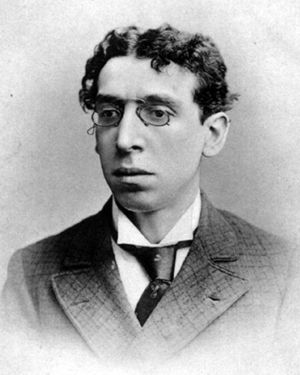
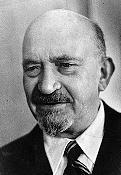
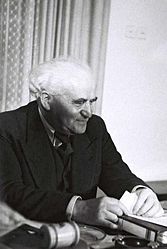
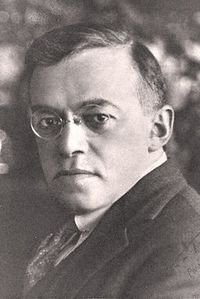
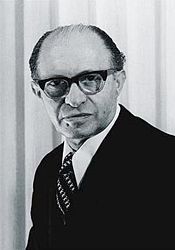
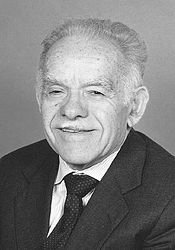









I fear the situation in the US is somewhat more complex, malignant even.
First, there's a constant "holding forth" of the Holocaust as a teaching device for the edification and chastisement of the goyim. Perhaps if the psychic capital of the event had been invested in an interest bearing account, rather than being trotted out to pay the day-to-day bills of over zealous Zionists, there might be more "goyish guilt" to tap into.
Next, there's the highly dangerous cultivation of the "Rapture scenario." Many evangelical Bible thumpers orgasm over the fulfillment of scriptural promise, justifying the resources Zionists invest in their cultivation. Left unsaid is the "end of days" that entails the virtual destruction of the Zionist state (and most of its Jewish folk) just before the return of the Messiah who was, after all, rejected by the Chosen People. The term "mixed emotions" comes to mind.
Bottom line; evangelical support for Israel is driven by a desire to be Ruptured out of an increasingly bad situation, a desire that is quite sanguine about the anticipated Shoan Mark II (G*d's will & all that.)
A growing "Christian Dominionist" voice in the US military (OK, mainly the AF, but they're players, right?) adds another unsavory ingredient to this witches brew, and further complicates the role of "civilian governance" in these increasingly complicated times....
The possibility that these threats are either some Machiavellian scheme or Netanyahu being a 'windbag' is discounted by the considerable number of former senior Israeli intelligence and military figures who have come out publicly against such a venture. One presumes they would be in a position to assess whether the threats were mere bravado.
I agree that it is very reassuring that the US military appears to recognize the dangers of getting involved in such a war. However, their reluctance would not count for much if political considerations compelled Obama to take the US into war in Israel’s support, or if there were US casualties caused (actually or ostensibly) by an Iranian response.
Unfortunately, such initial reluctance would not act to temper the military’s actions once they went in (even though Obama might well wish that). Their tendency to use the full force available to them is likely to ensure that “the consequences for the United States – and also Western Europe – would be dire, if not indeed absolutely catastrophic”.
As was pointed out, the Iranian response to an Israeli attack could well be critical to the outcome. It is difficult to make any reasonable assessment of the chances that it would be ‘strategic’. The Iranian regime also has internal imperatives, and may believe it cannot afford to give an impression of weakness by moderating its riposte. Just as the Holocaust overshadows and warps Israeli policies and actions, the influence of religion has a large effect on those of the Iranian ‘theocracy’. In both cases, rational considerations may be swamped by such ‘ideological’ beliefs....